1) Main board blocks
Main board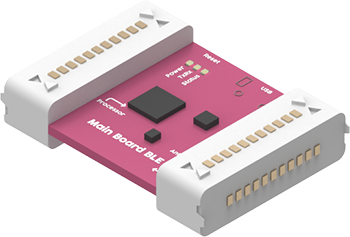
Main board BLE
1.1)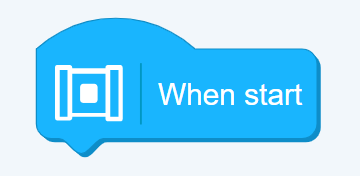
This is a commonly used programming block to start the program, meaning the program will start when the wire is connected.
Example 1: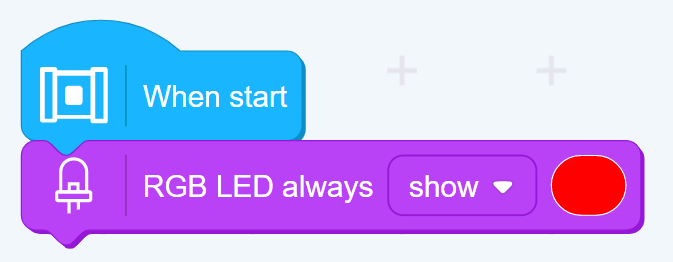
When start, RGB LEDs always show red lights.
1.2)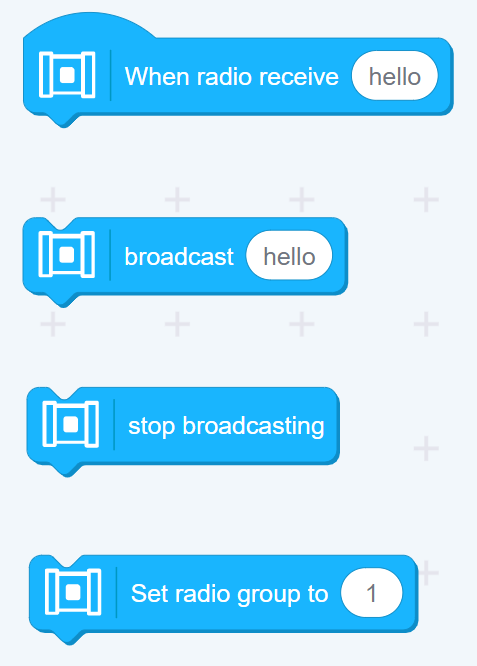
Broadcast blocks require both a broadcaster and a receiver to execute the program together to complete the action. Firstly, you need to set the radio group. Secondly, the initiator could start to send a broadcast message. After receiving the message, the receiver will do the next action. The characters of a broadcast name can be 12 maximum. The input range of a radio group is 1-64.
Example 2: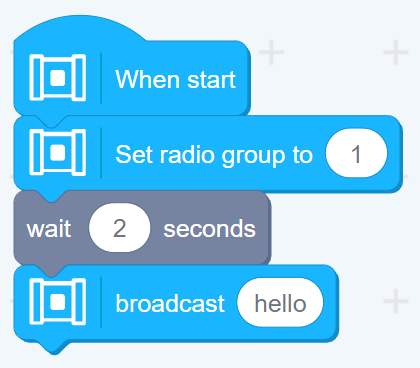
Program 1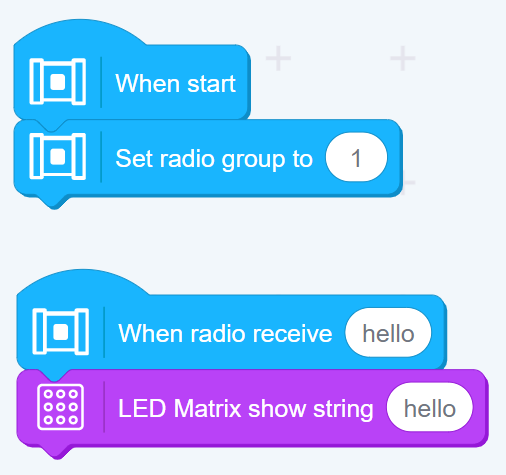
Program 2
It requires two main boards to write the two programs in the above respectively. When the two boards start, board A will broadcast in 2 seconds. Then board B receives the message and the LED matrix will show the string “hello”.
1.3)
This programming block controls the broadcaster to stop broadcasting.
Example 3: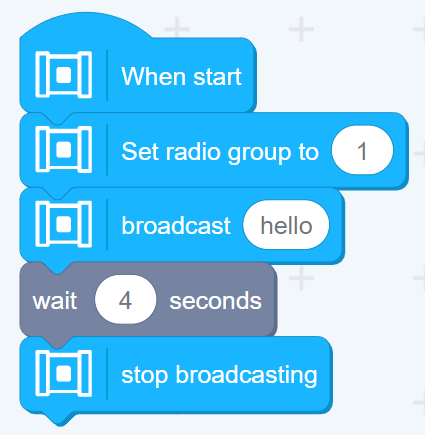
Program 1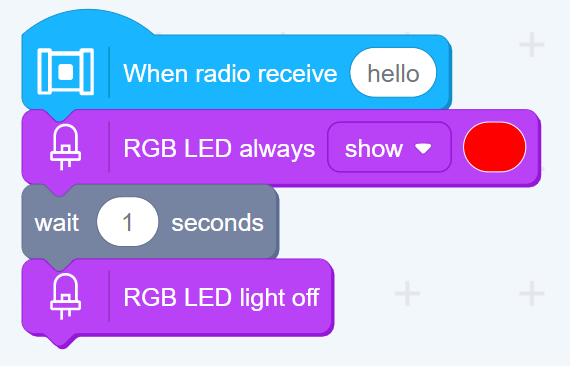
Program 2
It requires two mainboards to write the two programs in the above respectively. When the two mainboards start, board A will broadcast in 2 seconds. Then board B receives the message and RGB LEDs will show red lights and execute the following programs. After 4 seconds, board A stops broadcasting and board B stops executing other programs.
1.4)
As a block to start a program, the timer will start to work as the program starts and will time from 0. The timer module will be triggered once when the timer value is beyond the value that is set. No more trigger will happen thereafter.
Example 4: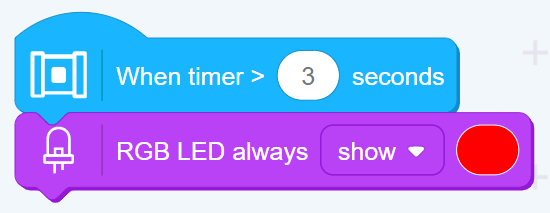
When start, RGB LEDs will show red lights 3 seconds after the program starts.
2) Twin button blocks
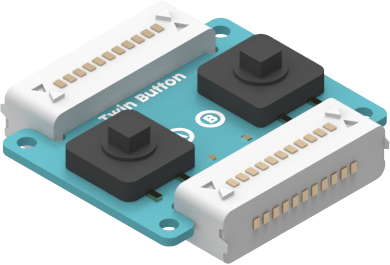
2.1)
As a block to start a program, this block controls the twin button to have many actions.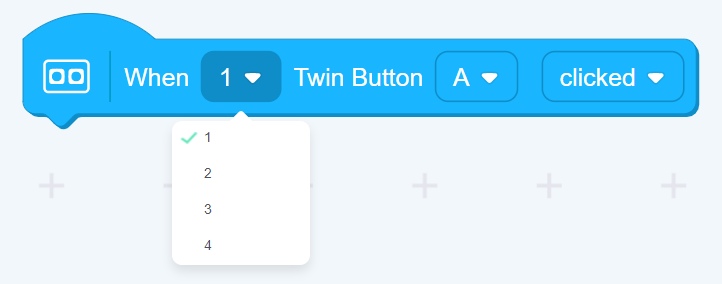
At most 4 buttons are allowed to connect.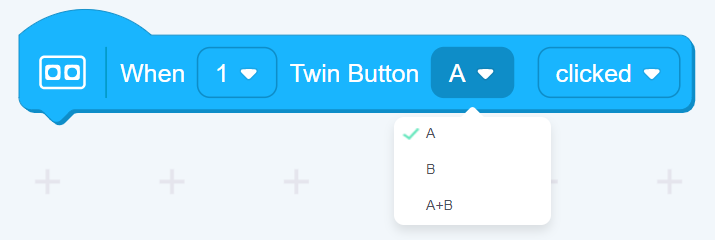
Each twin button supports three button-press combinations.
Each twin button can be either pressed or held.
Example 5:
When twin button A is clicked, RGB LEDs will show red lights.
3) 9-axis motion sensor blocks
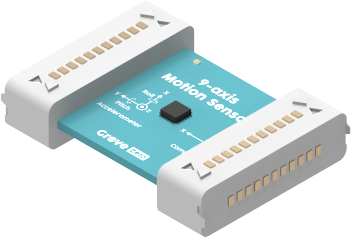
3.1)
As a block to start a program, this block controls 9-axis motion sensor to send commands when in some certain poses.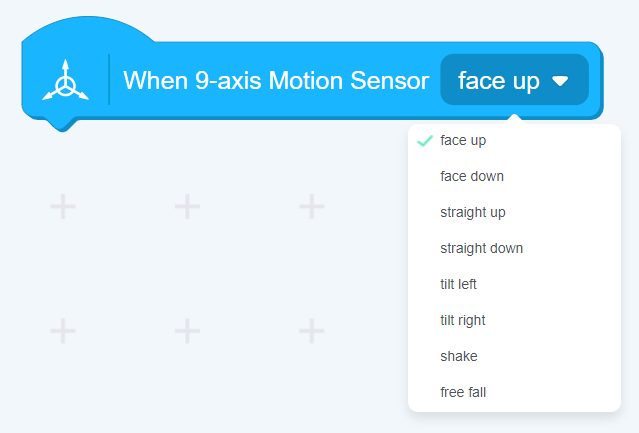
There are 8 built-in recognisable motions.
Example 6: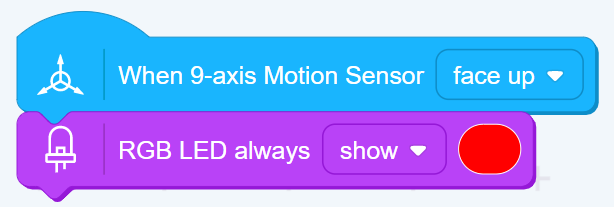
When 9-axis motion sensor faces up, then RGB LEDs always show red lights.
4) PIR motion sensor blocks
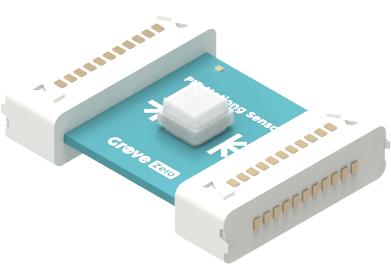
4.1)
As a block to start a program, this block controls 9-axis motion sensor to send commands when detecting people or animals.
Example 7:
When PIR motion sensor detects someone, RGB LEDs show red lights.
5) Mech Key blocks
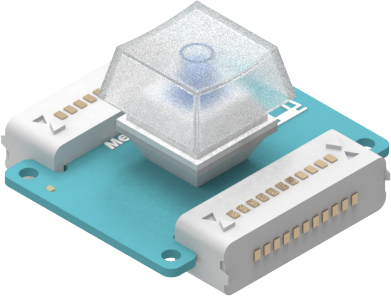
5.1)
As a block to start a program, this block controls mech keys to have many different motions.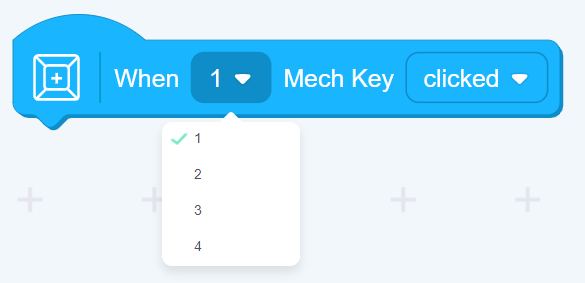
At most 4 mech keys are allowed to connect.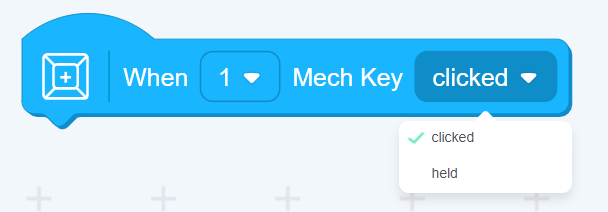
Each mech key can be pressed or held.
Example 8: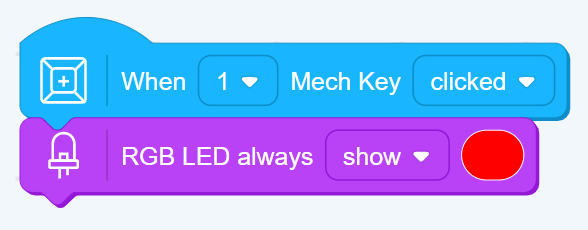
When 1 mech key is clicked, RGB LEDs will show red lights.
6) Knob blocks
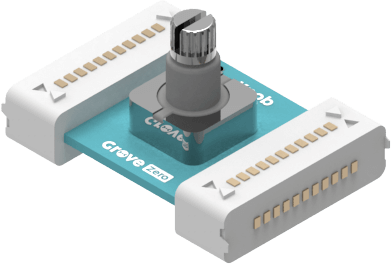
6.1)
As a block to start a program, this block controls the knob to have many different motions.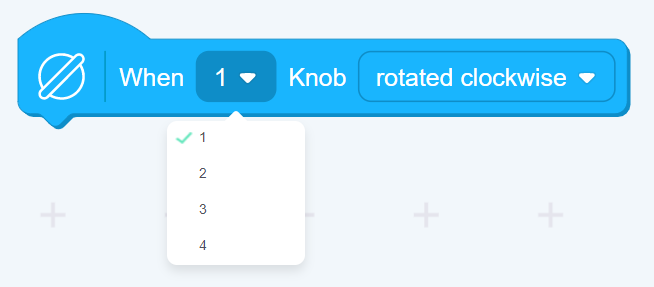
At most 4 buttons are allowed to connect.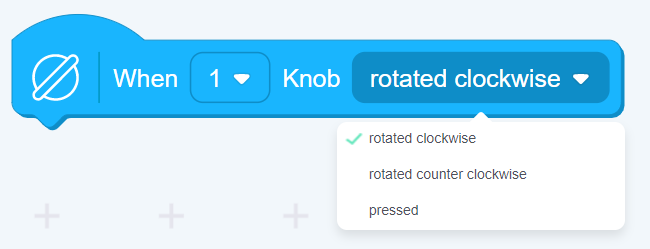
It supports 3 motions.
Example 9:
When 1 knob is rotated clockwise, RGB LEDs will show red lights.
7) Gesture Sensor blocks
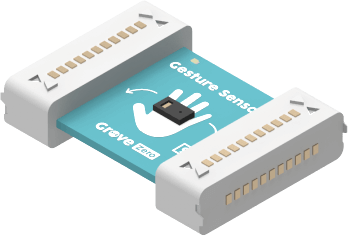
7.1)
As a block to start a program, this block controls the gesture sensor to send commands when detects gestures.
At most 9 gestures can be detected.
Example 10:
When the gesture sensor detects “swipe left”, RGB LEDs will show red lights.
8) Touchpad blocks
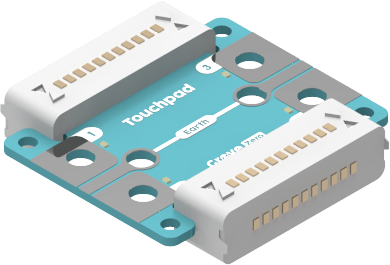
8.1)
As a block to start a program, this block controls multiple touchpad pins to give commands.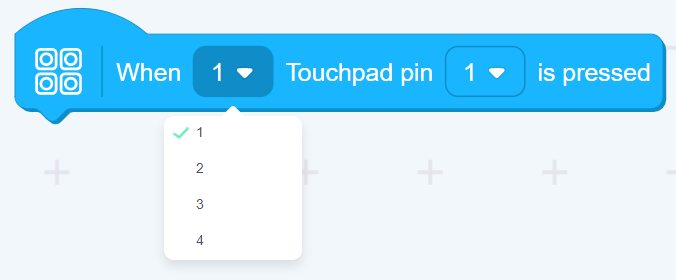
At most 4 touchpads are allowed to connect.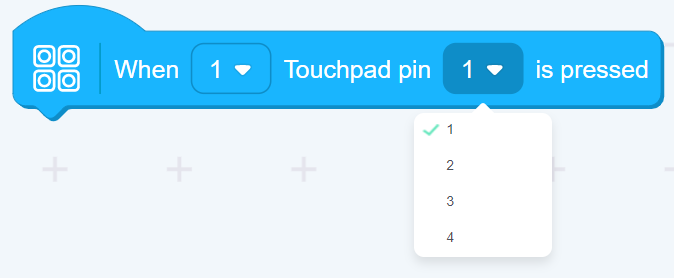
Each touchpad has 4 pins.
Example 11:
When touchpad pin 1 is pressed, RGB LEDs show red lights.

